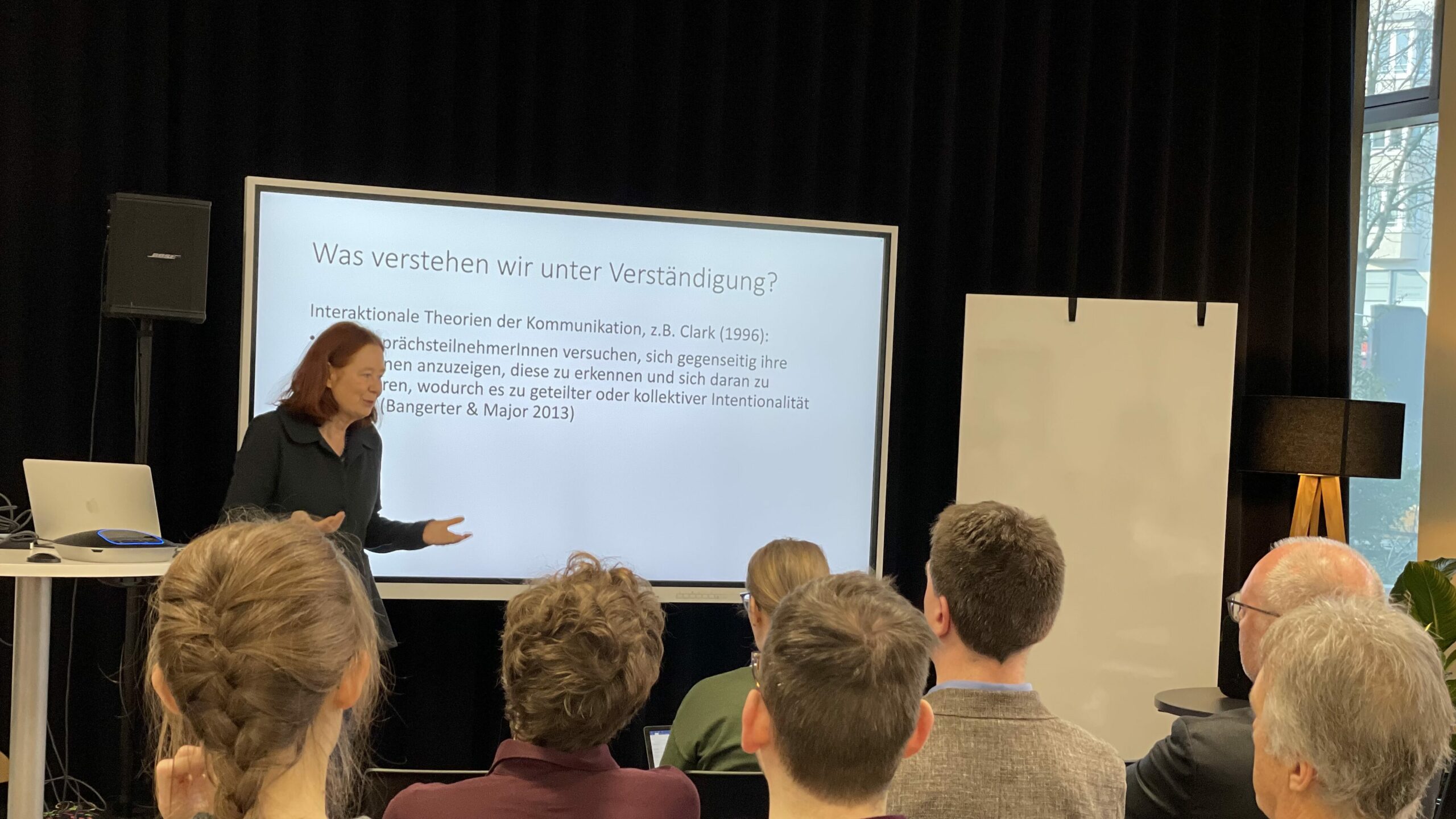From 29th of February to 1st of March 2024, the annual conference of the DGPuK specialist group Media Language — Media Discourses took place in Karlsruhe.
Communication in the digital space and on social media is accessible and diverse: New actresses/actors such as influencers can build large communities and sometimes reach even larger audiences than traditional media. Linguistically oriented media research examines how understanding and how a common ground can be established in the digital space. Synthetic media and the increase in fake news and conspiracy narratives exacerbate these challenges. Understanding is not always tied to facts but often to coherence. Therefore, the main question of the conference was: How do discourse participants perceive this communication and how should understanding and communication be assessed from the perspective of reception?
Various researchers explored this question in their presentations — including Dr. Fabian Ruth with his talk Evidence-Based Strategies for Audience-Oriented Communication in Knowlege-Conveying Online Presentations, Johanne Mayer with Strategies of Pandemic Communication on YouTube and Instagram and Anna Köhler and Salina Weber from the RHET AI Centre with ChatGPT as the Ideal Tutor? A Question of ethos.
Earlier, during the opening remarks, Prof. Annette Leßmöllmann provided a recap of the reading and panel discussion of the previous day, which focused on the theme "Brave New Text World" and delved into literary artificial intelligence and its impact on society. The group spokespeople, Dr. Philipp Niemann and David Pfurtscheller, emphasised their anticipation for interdisciplinary exchange and pointed out the current (communication) technological developments, which are poised at an intriguing crossroad.
Prof. Kerstin Fischer from the University of Southern Denmark delivered a keynote speech on conversing with robots and communicating with artificial agents. Additionally, she provided insights into her experiments involving social robots as artifacts capable of processing and utilising social signals, and how these were perceived by study participants. The focus was on exploring how communication with social robots can be achieved.

In other presentations, such as Prof. Nina Janich's, the focus lay on expertise and (knowledge) authorities. In her talk titled Are the Experts Wrong? Epistemic Claims and Accusations and their Negotiation in Science Blogs, she described the negotiation of knowledge in science blogs and the tactics used by bloggers to attribute or deny expertise. Examples of this include accusations of misinformation, logical errors, research errors, or inadequate justifications.
The conference provided insight into the research of various research groups, including MIRKKOMM, DiPubHealth, RHET AI, and Jugend präsentiert, as well as doctoral and habilitation projects, such as that of Dr. Nina Kalwa.
Overall, the conference shed light on the diverse aspects of digital communication, from the role of influencers to the negotiation of expertise in science blogs. Researchers presented new findings and approaches to addressing the challenges in this field. A complete list of the presentations can be found on the conference website (provided only in German).
For further information about the conference opening featuring a reading by Jörg Piringer and a panel discussion on generative literary AI, please visit: A Brave New World of Texts — reading and discussion with Jörg Piringer





